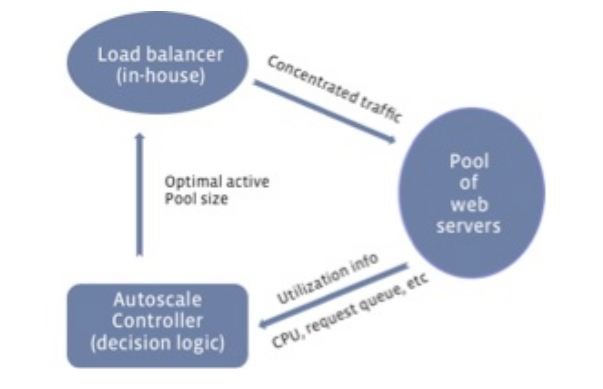A new traffic management invention could help Facebook cut its data center power consumption by 15% it has claimed.
The system, Autoscale achieves the saving by optimizing server workloads, by automating their management so that servers are never running at low capacity, which is when they at their least energy efficient.
The system’s goal is to keep servers either idling or running at medium capacity.
Facebook’s infrastructure software engineer Qiang Wu admitted on the company’s Code Engineering blog that Facebook’s current approach to load balancing could be improved.
A server running at low capacity needs 130 W in order to process its workload, but if it was given its fullest workload, it would only need an extra 20 W.
When the server is idling, it uses 60 W, Wu observed.
By re-assigning workloads, to free up servers running at low capacity, consumption on each unit can be cut by at least 70 W, just by making more efficient use of CPU (Central Processing Unit) utilization.
If these efficiencies were extended across the entire Facebook estate of data centers, the cost saving could be significant.
Facebook has addressed the issue of improving load balancing by changing the method of load distribution across web servers in a cluster.
Autoscale eschews the traditional ‘round-robin’ approach, used by Facebook in favor of a delayed system that waits until a server has at least a medium-level workload.
In quiet periods, if the overall workload is low the load balancer shares the work amongst a select group of servers, rather than spreading it thinly across the entire estate of servers available.
The idling server can then consume 60 W, rather than 130.
Wu said Facebook had to devise a way to make the system in large scale estates of servers, however, Autoscale rationalizes this problem by sub-dividing the server pool, dynamically adjusting the size of the server pool in use.
The danger was that by creating inactive pools of servers that receive no traffic in quiet times, the system could risk over concentrating its workload and being overwhelmed by sudden bursts of activity.
In a test, Wu reported, Autoscale created a 27% power saving in a low period of activity (after midnight).
Power saving during peak hours, however, was 0%.
The average power saving over a 24-hour cycle was estimated at between 10 and 15% for different web clusters.
“Though the idea sounds simple, it is a challenging task to implement effectively and robustly for a large-scale system,” Wu said.
Facebook says it has saved US$1.2bn over three years using Open Compute hardware designs.

